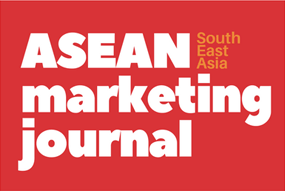
Abstract
Manuscript type: Research Article Research Aims: This paper wants to confirm the process feasibility study and advantage application when technology in social media enters goods' commercialisation. Design/methodology/approach: The methodology used in this research qualitative research methodologies, with an approach to data analysis using techno-economic and collective data on digital indoor advertising. Research Findings: The results of techno-economic analysis and feasibility analysis explaining digital indoor advertising business in Indonesia mini market is declared worthy of running, with description NPV on cash flows Rp. 3,664,679,991 and NPV sensitivity analysis of Rp. 3,554,930,887, IRR of 14.09%, and 13.96% (sensitivity analysis). Theoretical Contribution/Originality: This research contributes to the growth rate of digital advertising usage in Indonesia by viewing and measuring the business feasibility relating to the products used and looking at the profit and loss projects for the company when willing to run the business based on the techno-economic analysis. Practitioner/Policy Implications: This study intended as a reference and recommendation for promoting a product through a feasibility study, which tailors to the advantages implementation of digital indoor advertising mini-market in Indonesia. Especially for management/managers, product promotion becomes a strategy that has to play to catch up and develop market segmentation of a product. Research limitation & implications: The implementation needs business feasibility in determining effective or not promoting a product through techno-economic analysis. Digital advertising, which placed in a mini-market, can potentially lift the branding of a product in the marketing function.
Recommended Citation
Hendrix, Tommy; Ajie, Firman Tri; and Berliandaldo, Mahardhika
(2021)
"THE OUTLOOK DIGITAL INDOOR ADVERTISING IN MINI-MARKET USING TECHNO ECONOMY ANALYSIS: IMPLEMENTATION IN INDONESIA,"
ASEAN Marketing Journal: Vol. 13:
No.
1, Article 7.
DOI: 10.21002/amj.v13i1.13230
Available at:
https://scholarhub.ui.ac.id/amj/vol13/iss1/7





